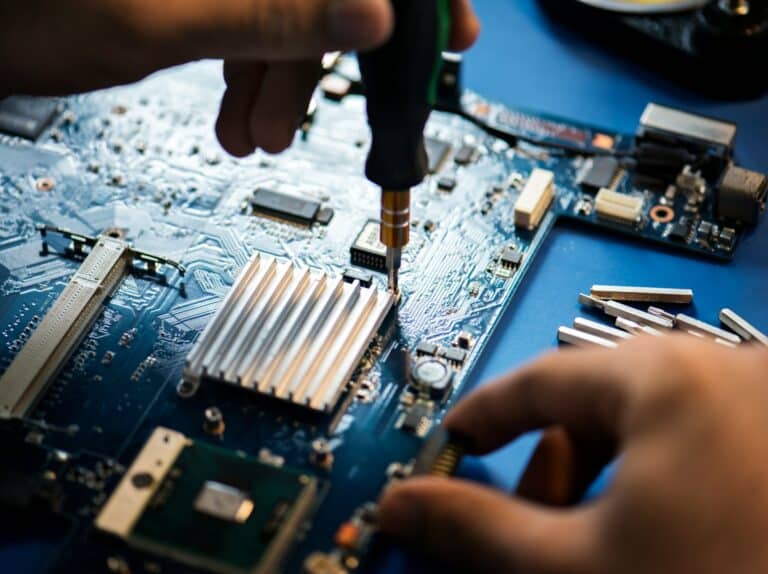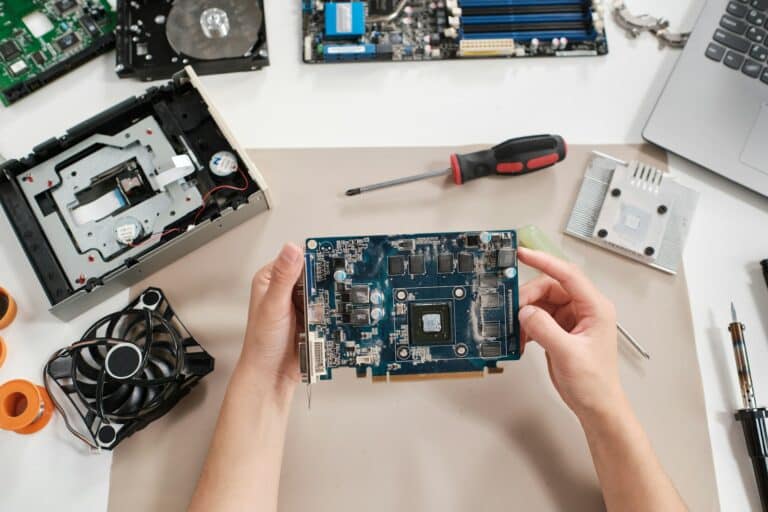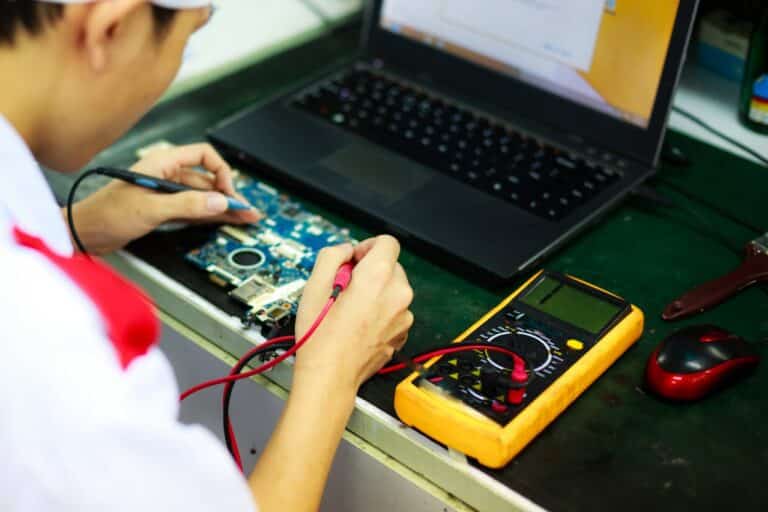Proper disposal of medical equipment in Atlanta is crucial for several reasons. Medical equipment often contains hazardous materials and sensitive data that must be handled with care. Improper disposal can lead to environmental harm and data breaches, posing risks to public health and safety. As a result, finding the right disposal methods and services is essential.
Understanding the importance of proper medical equipment disposal helps ensure compliance with regulations and promotes sustainability. Recycling and repurposing medical devices reduce waste and conserve resources. It also helps prevent medical errors by ensuring outdated or malfunctioning equipment is not reused improperly.
Preparing medical equipment for disposal involves several steps to ensure safety and accuracy. From cleaning and sanitizing to securely wiping data, each step plays a role in responsible recycling. This guide will walk you through the key factors to consider and the services offered by recycling centers in Atlanta. Plus, we’ll discuss common challenges and provide solutions for handling medical equipment disposal. By following these guidelines, you contribute to a safer, greener Atlanta and protect sensitive information.
I. Understanding the Importance of Proper Medical Equipment Disposal
Proper disposal of medical equipment is crucial for several reasons. Medical devices often contain hazardous materials like batteries, chemicals, and sharp objects. These materials can harm the environment if not disposed of correctly. Additionally, improper disposal can result in health risks for the public and workers handling the waste.
Another important factor is data security. Many medical devices store sensitive patient information. If this data isn’t securely erased before disposal, it can lead to data breaches and identity theft. Ensuring that medical equipment is disposed of properly protects privacy and complies with regulations.
Sustainability is another key reason to focus on proper medical equipment disposal. Recycling centers in Atlanta can repurpose many components, reducing the need for new materials. This not only conserves resources but also minimizes the environmental footprint. By understanding these factors, it becomes clear why choosing a responsible Atlanta recycling center is essential for medical equipment disposal.
II. Steps to Prepare Medical Equipment for Disposal
Preparing medical equipment for disposal involves several important steps. These steps ensure safety, data protection, and environmental responsibility.
- Clean and Sanitize: Before disposing of any medical equipment, clean and sanitize it thoroughly. This step is crucial to remove any biological contaminants and ensure the safety of those handling the equipment.
- Data Erasure: Ensure that all stored data is securely erased from the equipment. Use specialized software to wipe hard drives and data storage units. This helps protect patient information and comply with data protection regulations.
- Remove and Separate Hazardous Components: Identify and remove any hazardous components, such as batteries, chemicals, or sharps. These items need special handling and disposal methods to prevent environmental harm.
- Label and Document: Clearly label all equipment and hazardous components. Keep a record of the items being disposed of, including serial numbers and types of materials. This documentation can be useful for tracking and regulatory compliance.
- Choose a Certified Recycling Center: Select a certified recycling center in Atlanta to handle the disposal. Ensure the center has the proper certifications and follows environmental and data security standards.
Following these steps helps ensure that medical equipment is disposed of safely and responsibly. Proper preparation not only protects the environment and public health but also safeguards sensitive information.
III. Key Services Offered by Atlanta Recycling Centers for Medical Equipment
Recycling centers in Atlanta offer a variety of services to handle medical equipment disposal effectively:
- Equipment Collection: Many centers provide pick-up services, especially for bulky or heavy medical devices. This service simplifies the disposal process by transporting the equipment directly from your location to the recycling center.
- Data Security and Destruction: For equipment that stores sensitive information, centers offer secure data erasure and destruction services. These services ensure that all personal and medical data is permanently erased, protecting privacy and compliance with regulations.
- Recycling and Reuse: Certified centers follow strict guidelines to recycle and repurpose medical equipment. They separate usable parts and materials to reduce waste and support environmental sustainability. Some items may even be refurbished and repurposed for further use.
- Hazardous Material Handling: Medical equipment often contains hazardous materials that require special handling. Recycling centers have the expertise and facilities needed to safely dispose of these materials, preventing environmental harm.
- Documentation and Reporting: To meet regulatory requirements, centers offer detailed documentation and reporting of the disposal process. This includes certificates of destruction and records of recycled materials, giving you peace of mind and compliance assurance.
Understanding these services helps you choose the right Atlanta recycling center for medical equipment disposal. Proper handling, data security, and environmental protection are key benefits provided by these specialized services.
IV. Common Challenges and Solutions in Medical Equipment Disposal
Disposing of medical equipment comes with several challenges, but there are effective solutions to address them:
- Data Security Concerns: Ensuring that all sensitive data is securely erased can be challenging, but using certified recycling centers that offer data destruction services can solve this issue. Always verify their certifications and data security practices.
- Handling Hazardous Materials: Medical devices often contain hazardous components, which require special disposal methods. Partner with recycling centers that are equipped and certified to handle hazardous waste safely. They possess the knowledge and tools to manage these materials without causing environmental harm.
- Logistics and Transportation: Transporting bulky and heavy equipment to recycling centers can be difficult. Opt for centers that provide collection and pick-up services. This makes the process easier and ensures the equipment is safely transported.
- Regulatory Compliance: Meeting all regulatory requirements for medical equipment disposal is essential. Select recycling centers that offer comprehensive documentation and reporting services. They will provide you with the necessary records to confirm that disposal was conducted in accordance with all laws and regulations.
These solutions simplify the medical equipment disposal process, ensuring safety, regulatory compliance, and environmental protection.
Conclusion
Proper medical equipment disposal in Atlanta is essential for safety, data security, and environmental sustainability. From understanding the importance of responsible disposal to preparing equipment and overcoming common challenges, following the right steps ensures a smooth process. Atlanta recycling centers offer a range of services that make it easier to handle medical equipment responsibly, protecting both people and the planet.
By partnering with a reputable recycling center, you not only comply with regulations but also contribute to reducing electronic waste. Whether you’re a healthcare provider or an individual with medical equipment to dispose of, understanding these steps and services is key to making informed decisions.
For accurate and secure medical equipment disposal, trust Beyond Surplus. Our certified services ensure that your equipment is handled responsibly, from data destruction to hazardous material management. Contact us today to schedule a pick-up and contribute to a greener, safer Atlanta.


